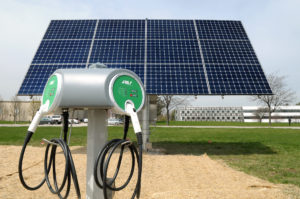 Embarking on a solar panel installation is a complex business with a lot of variables that are taken into account by the installation company. We happen to believe that consumers should be aware of these issues as well and should really look into them before they make the decision to select a particular vender to complete the installation. One of the variables is solar panel efficiency and we will spend some time on this post discussing this particular variable and how it relates to your business case for your new solar panel installation.
Embarking on a solar panel installation is a complex business with a lot of variables that are taken into account by the installation company. We happen to believe that consumers should be aware of these issues as well and should really look into them before they make the decision to select a particular vender to complete the installation. One of the variables is solar panel efficiency and we will spend some time on this post discussing this particular variable and how it relates to your business case for your new solar panel installation.
When you are considering a solar panel installation, you can impact your financial cash flow and business case in several ways. You can either control your costs and get them as low as possible and / or you can also increase your generation of electricity as much as possible by making sure that the efficiency is as high as possible. Obviously you want to make sure that both of these areas are dealt with in the best manner possible. We believe you actually should model this on a spread sheet and review how long it will take to repay the installation cost of the solar generation system based on the cost and the electrical generation. But that is the subject of other posts so we will move on to the main subject.
Solar Panel Efficiency – Specifications
Solar panels are manufactured with various specifications. Some are more efficient at generating electricity than others and of course the cost also varies as well. So the most efficient solar panels under laboratory conditions may not be the most efficient when you factor in the cost of these panels. Less efficient, lower cost panels may be actually better from a cost perspective per kilowatt generated. There are other factors to take into account as well when selecting solar panels and a solar installation firm. Here are five questions that we feel are important to take into account:
1. “How many solar panel systems has the company installed?”
Consider installers who have more than 50 installations under their belt. Consider installers who really understand the technology and can explain it to you. If they generalize too much, this should lead you to ask more questions. Take the time to educate yourself as well and know as much as the installers should know. You do not want to find out that the fence installer is now installing solar panels because there is not sufficient fence installation work.
2. “How long is the warranty on my solar panels – 25 years?”
Most solar panels on the market are high-quality and should have a guaranteed output of not less than 90% after 10 years and no less than 80% after 25 years. Look for this level of output from all brands. Also ask the installer how he will demonstrate this level of efficiency when the units are initially installed and how it can be measured in 10 years time.
3. “How long is the warranty on your labor – it should be 10 years or longer?”
Some installers will warranty their labor for 10 years in order for the system to be eligible for state rebates. They should also cover any potential damage to your roof as well. Any installer in the business for the long term should have no problem including this.
4. “How many kilowatt-hours will your system produce the first year?”
Assuming you have the warranty on labor and the efficiency on the panels, the next most important measure is how many kilowatts will the system produce every year. This is where the system will pay for itself. Sometimes less efficient systems cost less but meet the warranty measures. They may produce as much if not more kilowatts and significantly improve the business case for your solar installation.
5. “What will the total cost be for the system including components, installation, warranty and maintenance”?
The final cost or profit is going to be the income or energy saved in terms of dollars vs. the cost of the system. Include the labor to install and the annual maintenance plan. Don’t forget to include the cost of the loan if you have one. Or the cost of money that it takes to pay for this system. The money you spend could be used for other investments and gain a return so you have to take this into account if you are going to do a true business case.
For more information about solar panels, costs, installation and more, click here.
May 2nd, 2019 on 2:23 am
What i do not realize is in fact how you’re not actually a lot more smartly-preferred than you might be now.
You are so intelligent. You know thus considerably
in the case of this topic, produced me individually believe it from a lot of various angles.
Its like women and men aren’t involved until it is one thing to
do with Girl gaga! Your individual stuffs nice.
Always maintain it up!